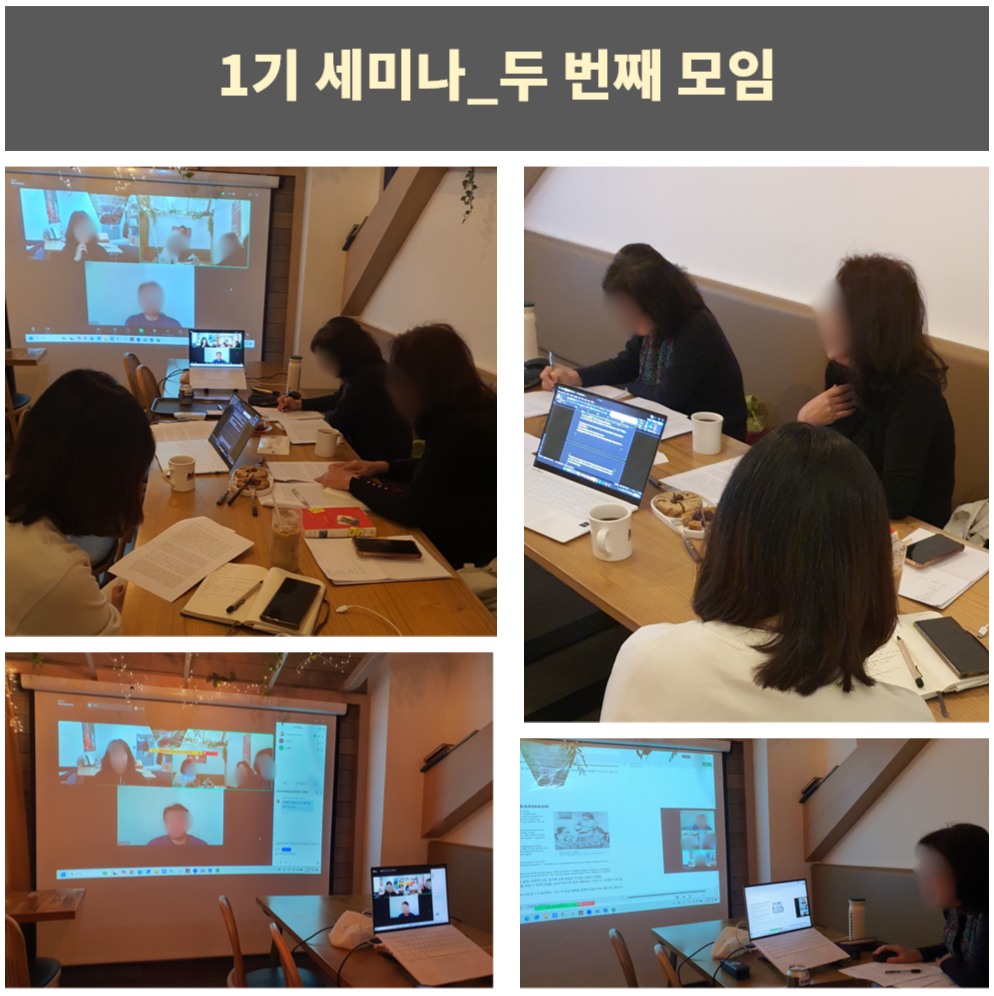The original Korean version of this update was posted on November 23, 2024. (Click here to view.) 
On November 23, the Unwed Mothers Initiative for Archiving and Advocacy (UMI4AA) held its second seminar of the term. We examined Is There a Class in Life?: Politics of Gene and British Eugenics by Woon Ok Yeom.
■ Book Review At the end of the 19th century, in the waning days of the Victorian era, a time of biological evolution and civilizational progress, eugenics emerged from an uncritical reverence for science and an insatiable desire for a superior race.
Eugenics intersected with imperialism, leaving a tragic legacy for humanity. The author contends that eugenics did not vanish with the decline of empire or the trials of Nazi war criminals, but rather evolved in its birthplace, England. Following the author’s narrative, one observes significant transformations characteristic of the 1920s and 1930s.
At the turn of the 20th century, Britain witnessed rising incomes from mass production, enabling even the poor to afford tea, while household electricity liberated people from the need to sleep by open fires. The Ideal Home Exhibition began in 1908, and by the 1930s, it prominently featured household appliances.
During this period, suffragettes and their daughters shifted towards maternalist feminism, proclaiming that “married women must be the primary agents of the women’s rights movement.” This transition replaced the earlier “maternity fund” with “family allowances” and brought scrutiny to premarital sexuality. Simultaneously, the Eugenics Society advocated both for the elimination of individuals with disabilities and for “eugenics to regulate marriage and reproduction.”
In the 1930s, discussions around marriage and family flourished. The Eugenics Society participated in the Ideal Home Exhibition, promoting the slogan “Wed Wisely & Help to Build a Healthy Nation” The establishment of the Marriage Guidance Council and the Marriage Guidance Sub-committee further reflected these efforts. Eugenics increasingly transformed into “hygiene,” sexuality into “health,” and motherhood into “family,” contributing to a modern family structure in which, as Foucault suggests, sexuality and love were subsumed within marriage and family. Consequently, individuals with disabilities, single parents raising children alone, and unwed mothers with children born outside marriage were progressively excluded from the definition of “family.”
Though the book was challenging to read, it sparked many insightful discussions among seminar participants.
■ Participants’ Reflections - It is important to examine what eugenics aligns with in the context of its time. Recent developments, such as South Korea’s Protected Birth Bill, also prompt critical questions about the type of "life" the state seeks to protect. Giorgio Agamben’s Homo Sacer introduces the dual concept of life, distinguishing between zoe (natural existence) and bios (the cultural and existential). This perspective urges us to imagine beyond theories and frameworks that subjugate life to the logic of capital.
- The discussion of how eugenics and feminism, despite their divergent aims, occasionally aligned was both unexpected and fascinating. This brought to mind examples in Korean literature that might be categorized as 'eugenic feminism.' It also underscored the limitations of dismissing earlier women’s rights movements as merely bourgeois without critically examining how motherhood was strategically employed to secure women’s roles as citizens. In Korea, the women’s movement, even up to the 1980s when progressive feminist movements began to emerge, remained largely focused on advocating for women’s rights through family law reform. This focus, however, ultimately reinforced patriarchal discourses surrounding the "normal family" and constrained women’s rights as individuals and autonomous human beings. Joan Wallach Scott’s observations in Only Paradoxes to Offer (1996) about the paradoxical entrapment of women who gained rights from the state through reproductive roles felt particularly relevant here.
- The participant’s observation that the growing emphasis on nurture within eugenics may have contributed to the legitimization of adoption is well-founded. Historical developments during the 1930s increasingly prioritized nurture over biological ties, positioning adoptive mothers as superior within dominant discourses. (See Julie Berebitsky, Like Our Very Own: Adoption and the Changing Culture of Motherhood, 1851–1950 (2000) for further reference.)
- This discussion brings to mind two films worth recommending: Delivery (2023), a dark comedy exploring the complexities of pregnancy, and My Best, Your Least (2024), which examines teenage pregnancy and its effects on those involved.
- In contemporary society, the dichotomy between good and evil appears increasingly blurred under the guise of 'diversity' and 'personal choice.' Eugenics, often perceived solely as an evil, can instead be understood as an internalized value embedded in everyday life. This perspective raises important questions about how social issues should be approached in the future.
■ December Seminar Announcement * Following the seminar, we will gather for an end-of-year meal. Our seminar series will continue monthly through April 2025. Participants are welcome to join for any single session on a topic of interest. This seminar is open to everyone! After signing up, please read the selected article/book in advance. Come prepared to share your insights, engage with the author’s arguments, and pose any questions for discussion. ▶ UMI4AA 1st Seminar Series Sign Up: Click HERE to register for the next session. * Registration Fee: KRW 5,000 per session (Payment Info: Hana Bank 563-910001-36804 | Unwed Mothers Initiative for Archiving and Advocacy) Thank you for dedicating your time and energy to this seminar series. We look forward to seeing you in December for what promises to be another enriching discussion! 
|
